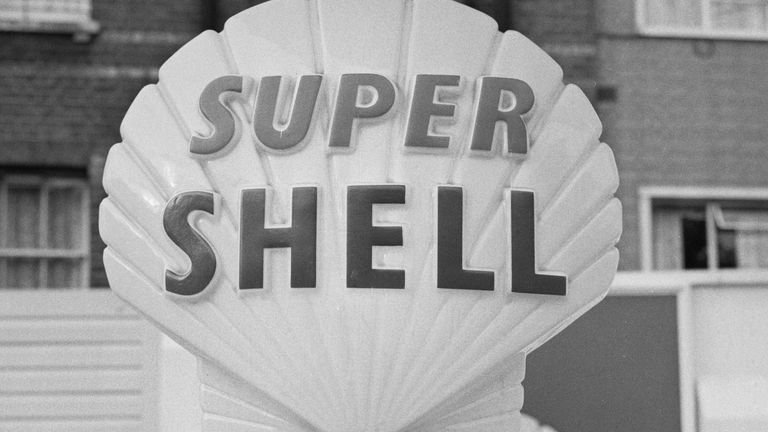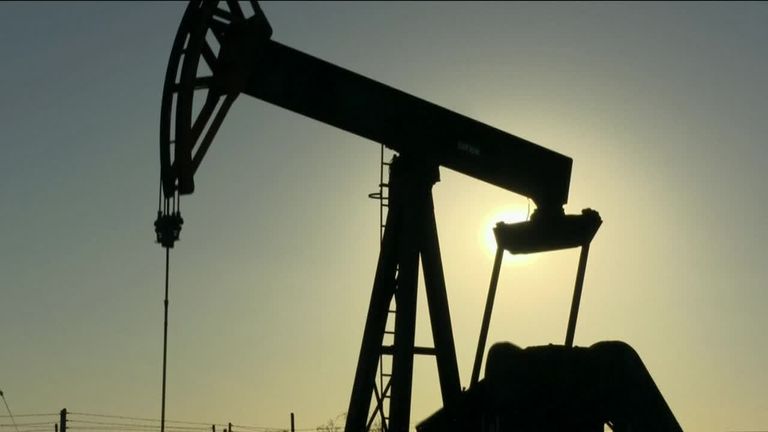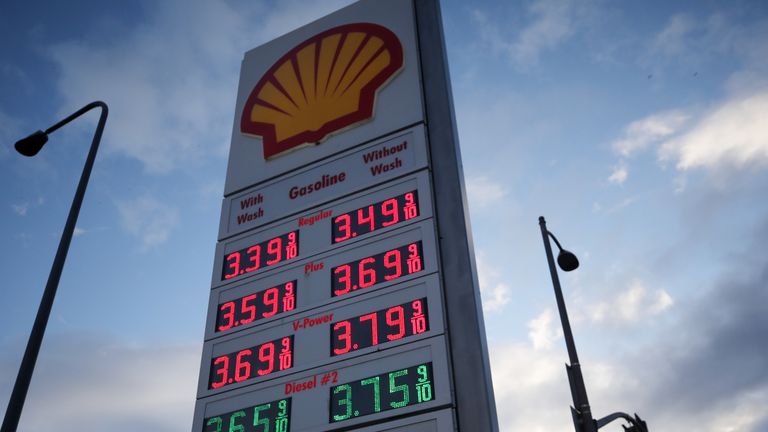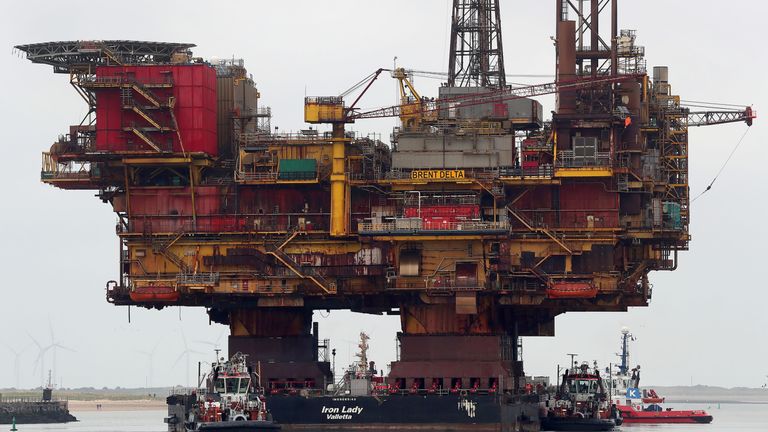It is a day few in the oil and gas industry - or the stock market - thought they would ever see.
Royal Dutch Shell has cut its dividend for the first time since the Second World War.
That proud record of increasing, or at the very least maintaining, the payout year after year was kept up all the way through the depressed oil market of the 1980s and early 1990s.
During that period, most of Shell's competitors were forced to cut their payout - most notably BP which, in 1992, was forced to do so for the first time since the First World War.
That level of reliability is why generations of trainee stockbrokers were brought up on the old market adage of "never sell Shell".
Yet another old market adage has it that, if the shares of a company are trading with a yield in double figures (the yield is the dividend divided by the share price and multiplied by 100), the dividend is unsustainable.
Shares of Shell were trading in March on a yield of 14% - raising doubts about the sustainability of the dividend at current levels.
The cut was duly delivered today.
The COVID-19 crisis has forced a rebasing, in the jargon, of the payout in a way that previous crises could not.
Shell's first-quarter dividend payment will be just 16 cents (12.6p) - Shell, like BP, declares its earnings and makes its payouts in US dollars - down from 47 cents (37p) for the first three months of last year.
Explaining the reduction, the company said the pace and scale of the societal impact of COVID-19, along with the resulting deterioration in the macroeconomic outlook and the outlook for oil and gas prices, was unprecedented.
It said it was unclear how long these conditions would persist but that it was expecting the weaker conditions to extend into next year.
Chad Holliday, Shell's chairman, added: "Shareholder returns are a fundamental part of Shell's financial framework.
"However, given the risk of a prolonged period of economic uncertainty, weaker commodity prices, higher volatility and uncertain demand outlook, the board believes that maintaining the current level of shareholder distributions is not prudent.
"As conditions allow, the board will continue to evaluate our capital allocation priorities between ongoing investment in our business, maintaining a strong balance sheet and increasing returns to shareholders which remains our ambition."
The impact of this move will be profound.
With an annual payout that last year totalled $15bn (£12bn), Shell was the biggest payer of dividends in the corporate world.
Dividends by Shell and BP, which actually increased its payout earlier this week, account for 24% of all dividends paid by FTSE 100 companies.
Accordingly, they are a staple of most pension schemes, relied on by of savers around the world to pay them an income in retirement.
It will be a huge blow to such savers and particularly coming after the banks - also among the biggest dividend payers in the market - announced they would not be paying dividends in respect of 2019.
As Kit Atkinson of the financial administration services firm Link Group, noted: "Shell has administered a bitter pill to investors.
"A two-thirds cut in its dividend is not surgical precision, it's amputation, and is more evidence of the appalling damage the pandemic is doing to the world economy.
"If the payout remains this low for the rest of the year, it will cost Shell's shareholders £5.6bn in lost income in 2020 and even more next year."
The timing of the cut may have taken some in the market by surprise.
Shell, which had indicated strongly that the dividend would remain in place, had raised billions of dollars on the bond markets in recent weeks.
This increased level of financial flexibility had reassured analysts and fund managers that the dividend was secure for at least the next six months.
So the timing of this cut is a firm indication that Shell expects the weakness in the global economy caused by COVID-19 lockdowns, and the accompanying weakness in oil and gas prices, to persist well into 2021.
One glance at Shell's first-quarter results, published this morning, highlights the unsustainability of maintaining the dividend at the previous level.
Earnings on a current cost of supplies basis, Shell's preferred measurement, fell by 46% to $2.957bn (£2.33bn).
And this in a quarter when, for two out of the three months, trading conditions were relatively normal.
As a result, although Shell shares fell, market reaction has been rather less hostile than would have been the case in normal times.
Analysts pointed out that, on the back of its recent announcement to seek to become net zero carbon by 2050, there was a need for the company to conserve capital.
Christyan Malek, oil and gas analyst at broker JP Morgan Cazenove, described the cut as a "necessary evil".
He said: "We believe the decision to cut the dividend is fiscally prudent, with the positive corollary that it affords Shell the ability to allocate incremental capital to high-value barrels as demand recovers and accelerate its energy transition agenda to net zero carbon by 2050."
Biraj Borkhataria, co-head of European energy research at RBC Capital Markets, added: "The move will allow Shell to pivot more easily through the energy transition, and not to be tied to a $15bn dividend to service each year."
Cutting the dividend is not the only move being taken by Shell to conserve capital.
It had already suspended its share buyback programme and has announced plans to cut capital spending by $5bn (£3.9bn) this year - while its operating costs will also be cut by some $4bn (£3.2bn).
But the dividend cut is the biggest and most eye-catching measure of them all.
If anyone was in any doubt about how seriously the corporate world is taking this pandemic and its lingering after-effects, they will not be now.
https://news.google.com/__i/rss/rd/articles/CBMidmh0dHBzOi8vbmV3cy5za3kuY29tL3N0b3J5L2Nvcm9uYXZpcnVzLWJpdHRlci1waWxsLWZvci1zYXZlcnMtYXMtc2hlbGwtY3V0cy1kaXZpZGVuZC1mb3ItZmlyc3QtdGltZS1zaW5jZS13dzItMTE5ODExNDHSAXpodHRwczovL25ld3Muc2t5LmNvbS9zdG9yeS9hbXAvY29yb25hdmlydXMtYml0dGVyLXBpbGwtZm9yLXNhdmVycy1hcy1zaGVsbC1jdXRzLWRpdmlkZW5kLWZvci1maXJzdC10aW1lLXNpbmNlLXd3Mi0xMTk4MTE0MQ?oc=5
2020-04-30 13:24:34Z
52780756414312




Tidak ada komentar:
Posting Komentar